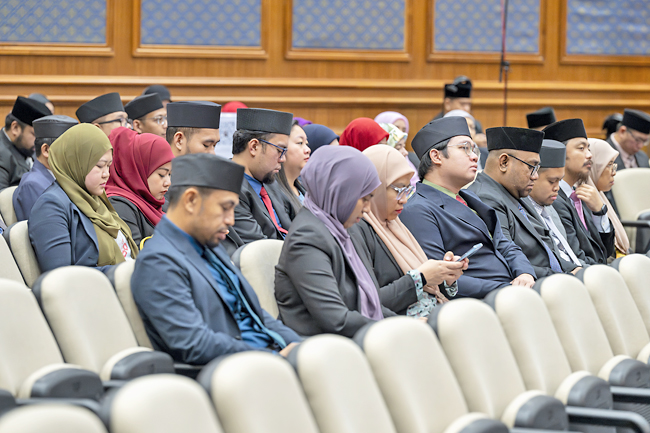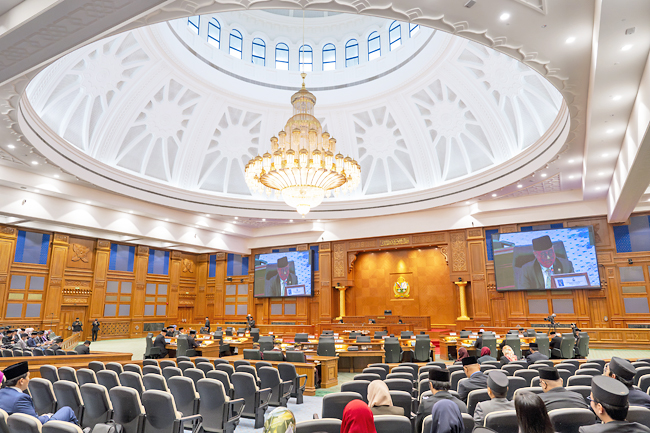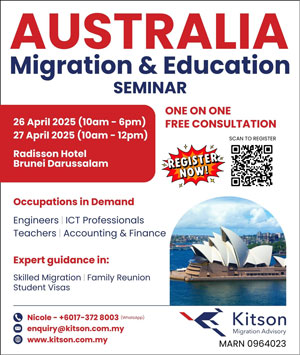The total budget of the Ministry of Health (MoH) for the 2024-2025 financial year is BND573,064,540, an increase of 37 per cent from the previous year, said Minister of Health Yang Berhormat Dato Seri Setia Dr Haji Mohd Isham bin Haji Jaafar during the 20th session of the Legislative Council (LegCo) meeting yesterday.
The minister said the budget will go to acquiring additional doctors, nurses and allied health professionals; asset maintenance and repair; medical supplies and consumables; rent and lease; and human resource development.
The most significant increase is the transfer of patients for treatment to Gleneagles JPMC and Pantai Jerudong Specialist Centre (PJSC), totalling BND150 million, a 35.9-per-cent increase from the previous financial year. The minister also outlined five priority areas.
The first being the use of cost-effective and innovative solutions to building maintenance; medical equipment; upgrading or repairing critical infrastructures in hospitals and health centres.
Among the projects that have been initiated include Raja Isteri Pengiran Anak Saleha Hospital where the wards, the intensive care unit (ICU) are being upgraded and structures repaired; the installation of energy-saving equipment; and increasing the capacity of three operating rooms and equipped them with state-of-the-art equipment.
Suri Seri Begawan Hospital in the Belait District is also given similar attention such as increasing the number of liquid oxygen tanks to accommodate the growing demand. Efforts are also made at other hospitals and health centres across the country.






There is also an addition of a magnetic resonance imaging (MRI) machine; three mammography machines; an extracorporeal shock wave lithotripsy (ESWL); CT scan with higher capability; and laboratory equipment not only needed in hospitals to detect diseases but also valuable to law enforcement units.
The MoH’s second priority is enhancing screening for non-communicable diseases (NCD) and health promotion activities. Among the new services that will be introduced is the screening for human papillomavirus (HPV) among women.
A national diabetic retinopathy (DR) screening programme will also be introduced using artificial intelligence (AI) in light of an increase in DR patients from 251 in 2022 to 283 in 2023, said the minister. The use of AI technology will aid the MoH’s screening efforts, to detect changes early in an increasing capacity.
The programme, he added, can also be operated on the move, thus benefiting residents in rural areas, such as Sukang and Melilas in Belait District.
The minister also called on private health clinics to consider the adoption of AI technology as it has the potential to detect other eye conditions such as glaucoma, age-related macular degeneration and cataracts as well as systemic diseases such as Alzheimer’s.
To strengthen disease prevention measures, the MoH’s Health Promotion Centre (HPC) will continue to develop health programmes, including health services in schools to ensure optimal health of students.
The minister also highlighted a weight reduction programme, the Fit and Active Lifestyle Club (FALC), introduced in June 2022 involving six ministries, as well as a contribution from Gleneagles JPMC for the implementation of health programmes such as the Workplace and Health Programme (WAH) programme, the Happy Environment and Lifestyle (HEAL) programme and the Growing, Learning, Optimising Towards Better Well-Being in Schools (GLOW) programme for school students.
On third priority, Yang Berhormat Dato Seri Setia Dr Haji Mohd Isham said, human resource planning to produce skilled and competent personnel. “The MoH adheres to the principle ‘Our workforce is our most valuable asset’. Therefore, the management of human resources and must be strengthened to ensure that the needs of the people are met,” he said.
A total of BND1,216,000 will be allocated to human resource development, an increase of BND226,000 from the previous year, excluding the cost of sending staff to undergo in-service training (LDP), which is under the Public Service Department at the Prime Minister’s Office.
For the next financial year, several international trainings have been planned, which are estimated to cost of BND309,000, one of which is the Healthcare Leadership Executive Programme, a joint venture with SingHealth Singapore starting in May, aimed to better the quality of leadership among officers who have been identified as having the potential at the MoH. The MoH has also launched an initiative to develop the skills of i-Ready apprentices through the i-Entrepreneur Programme to spur innovation and spark creativity through entrepreneurship skills.
The fourth priority, according to the minister, is to increase digitisation, especially for government payment systems, such as digital payments through BruHealth, One Common Billing System (OCBS) and other online payment platforms. The fifth priority, the minister said, is the implementation of green protocol by leveraging the use of information technology in the daily work process, thus with the objective of supporting the country’s aspiration for a clean and green environment, in line with the second goal of Brunei Vision 2035 of ensuring a high quality of life among the people. – Azlan Othman





